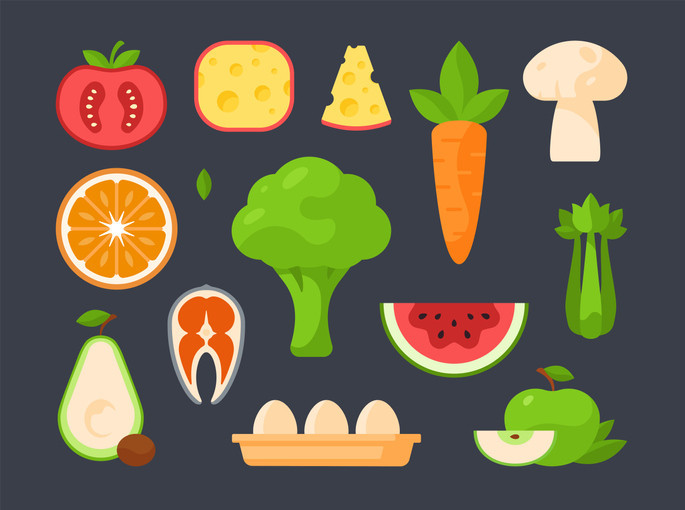
Zinc: What it does for the body, and the best food sources

Respiratory health harms often follow flooding: Taking these steps can help

Tips to leverage neuroplasticity to maintain cognitive fitness as you age

Can white noise really help you sleep better?

Celiac disease: Exploring four myths

What is prostatitis and how is it treated?

What is Cushing syndrome?

Exercises to relieve joint pain

Think your child has ADHD? What your pediatrician can do

Foam roller: Could you benefit from this massage tool?
Nutrition Archive
Articles
Weight-loss diets that keep your heart happy
People should be cautious about weight-loss diets that restrict a specific category of food (such as carbohydrates, fats, or even animal products) without focusing on the overall quality of the foods. Diets with lots of ultra-processed foods or red meat may contribute to poor heart health. But people can lose weight on less-extreme versions of either low-carb or low-fat diets, as long as they focus mostly on unprocessed or minimally processed foods.
Conquer your fear of dietary fat
For decades, high intake of fat was thought to cause weight gain, heart disease, and maybe even cancer. The solution? Go low-fat, which often meant consuming more carbs and more sugar. But nutritionists now suggest people actually need adequate amounts of "good" unsaturated fat, and less "bad" saturated fat, for optimal health. Following popular heart-healthy diets, like the Mediterranean and MIND diets, and making simple dietary changes can help people get adequate amounts of good fats.
Feed your gut
Some fermented foods contain probiotics, beneficial microorganisms that can live in your intestines. These microorganisms help you stay healthy, potentially improving your immune function and reducing damaging inflammation. Eating prebiotics—high-fiber foods that are a source of nutrition for these healthful microorganisms—is essential to help these beneficial microorganisms grow and thrive.
4 essential nutrients — are you getting enough?
The latest update to the Dietary Guidelines for Americans states that many people are not getting enough of four essential nutrients: calcium, potassium, dietary fiber, and vitamin D. But how much of these nutrients should you aim for and what are some good sources for them?
Preventable liver disease is rising: What you eat — and avoid — counts
Fatty liver disease is a condition caused by irritation to the liver, and one specific type is triggered by metabolic risk factors. Following a healthy diet can prevent or possibly even reverse it.
A combination of healthy diets linked with longer life
People who follow a combination of healthy diet plans that share similar traits may have a lower risk of death from cardiovascular disease and cancer.
Crucial ways you can support a healthy immune system
There’s no evidence that maintaining a healthy lifestyle will suddenly boost the immune system. However, it’s clear that healthy lifestyle habits contribute to overall health, supporting the body’s ability to fight infections instead of creating new problems. Healthy habits that help maintain a robust immune system include getting seven to nine hours of sleep per night, exercising, reducing stress, eating a healthy diet, not smoking, drinking alcohol only in moderation, maintaining a healthy weight, and getting underlying conditions under control.
Easy ways to shop for healthful, cost-conscious foods
Healthier eating starts with food shopping, and supermarkets are full of choices that are both nutritious and less so. But trips to a grocery store don't have to feel overwhelming or be budget-blowing; it just takes a little planning, strategy, and thinking ahead.
Why eat lower on the seafood chain?
Cutting back on red meat and replacing it with poultry or seafood is a good choice because those are healthier sources of protein — and better for the environment. Choosing seafood that is lower on the food chain can amplify those benefits.

Zinc: What it does for the body, and the best food sources

Respiratory health harms often follow flooding: Taking these steps can help

Tips to leverage neuroplasticity to maintain cognitive fitness as you age

Can white noise really help you sleep better?

Celiac disease: Exploring four myths

What is prostatitis and how is it treated?

What is Cushing syndrome?

Exercises to relieve joint pain

Think your child has ADHD? What your pediatrician can do

Foam roller: Could you benefit from this massage tool?
Free Healthbeat Signup
Get the latest in health news delivered to your inbox!
Sign Up











